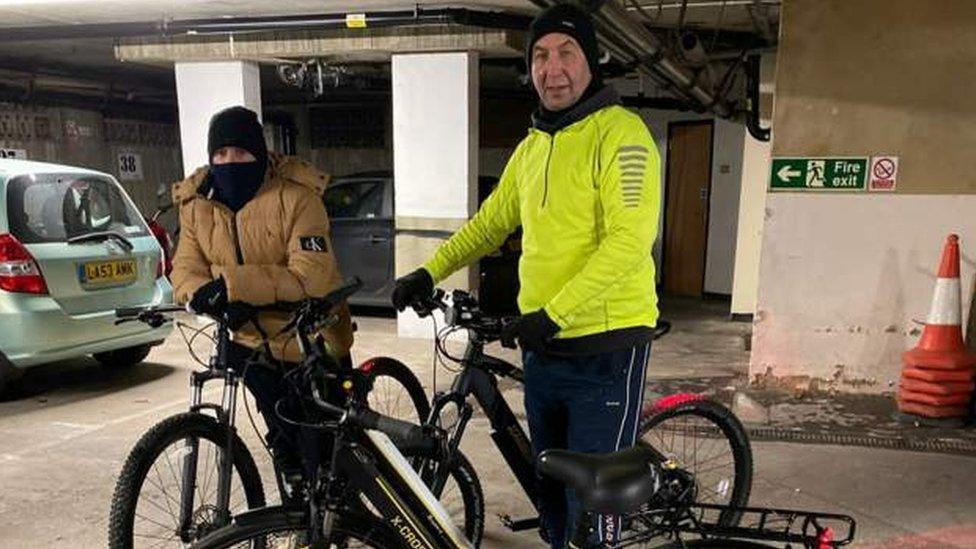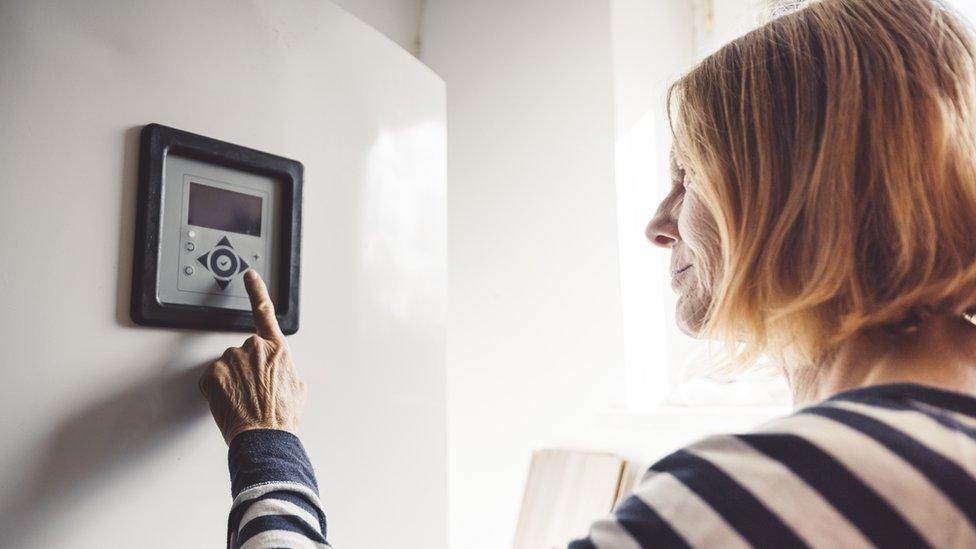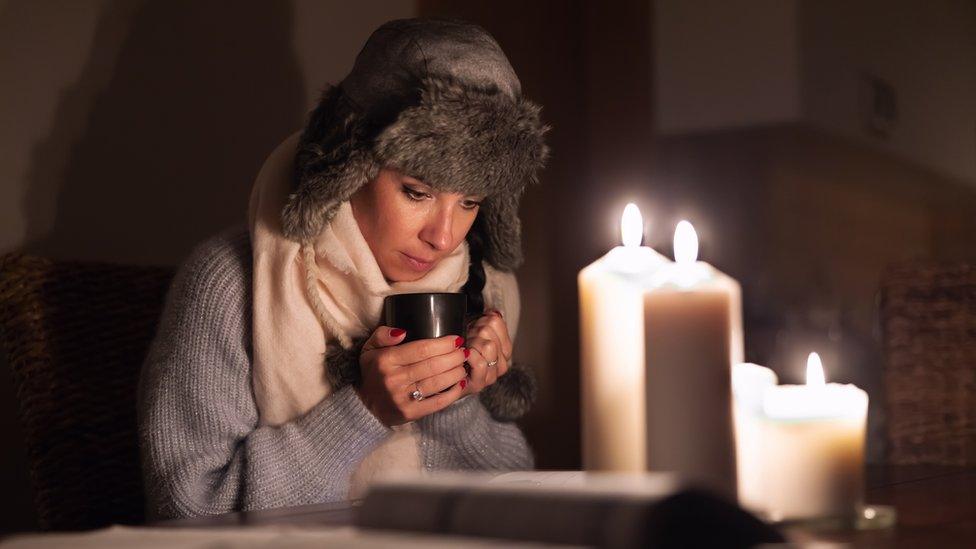Energy saving scheme: National Grid pays people to cut power again due to cold weather
- Published

Discounts for households to use less electricity at peak times will be offered again later as part of a scheme to avoid blackouts.
National Grid's Demand Flexibility Service will be offered for a second time to eligible households between 16:30 and 18:00 GMT on Tuesday.
Those who have signed up get discounts on their bills if they do things like delay using their oven.
The scheme, external ran for the first time on Monday from 17:00 to 18:00 GMT.
According to National Grid's electricity system operator, external, more than a million households and businesses in England, Scotland and Wales have signed up to take part.
The scheme - which is only available to homes with smart meters - was introduced last year and is scheduled to run until March.
Amanda Boorah and her family were one of the households who took part on Monday.
They chose to go on a bike ride to avoid using electricity at home.
She told the BBC the entire experience was a "great excuse to get out for an hour and get some exercise while saving energy and money".

Amanda Boorah's family went for a bike ride during Monday's event
"It's a win-win," she said, adding: "I'd encourage everyone to give it a go."
However, Suzanne Murray, an NHS administrator from Southampton who took part in the scheme with E.ON on Monday, was less enthusiastic.
"E.ON have told me that if I hit my target of 20% reduction... I could earn around 5p," she told the BBC. "That's not worth it!"

Could you get money off your bill?
According to National Grid, the first thing you should do is check whether your supplier is one of the 26 that has signed up to the scheme, external. You'll get a notification that it starts today.
People in England, Scotland and Wales who have a smart meter are eligible.
Customers will receive a discount if they reduce their electricity use between the times set by National Grid. On Tuesday the scheme will run between 16:30 and 18:00 GMT.
You can save by doing things like delaying using your washing machine or tumble dryer, or charging your electric vehicle.
National Grid said savings can range from a few pounds to as much as £20 depending on the amount of energy used.

National Grid said it paid suppliers between £3 and £6 for every kilowatt hour of energy saved between 17:00 and 18:00 on Monday.
How much is passed on to consumers will depend on the supplier. However, in general households involved in the scheme can expect to save between £2 and £20 off their energy depending on their usage.
Octopus Energy says that during trials of the scheme typical bill payers received well over £1 for just one hour's shift (as well as saving on their energy costs), the top 5% of participants earned an average of £4.27.
Coal power
This week's cold snap is expected to lead to high power demand, while wind power is forecast to be lower than usual.
It is also uncertain whether the UK will be able to import the power it needs via undersea cables from Europe.
On Monday, National Grid ordered three UK coal-fired plants to begin warming up in case they were needed to generate electricity.
It had made the same order on Sunday, although the plants were subsequently stood down.
National Grid said the use of the Demand Flexibility Service and the warming of coal plants was "not an indication that electricity supplies are at risk, but that we require greater options to manage the network as normal".
BBC climate editor Justin Rowlatt said the fact that it was deemed necessary to warm up coal-fired power stations was a sign of how far the renewable revolution still has to go.
As yet there are no economical grid-scale energy-storage solutions that can see the country through a spell of cold weather which coincides with a lull in the wind, he said, and that is unlikely to change for many years to come.
Last summer, the UK government asked owners of coal-fired generators to extend their use due to fears over the security of energy supplies following Russia's invasion of Ukraine.

Will you be taking part in the scheme today? Share your experiences and send us any questions you have by emailing haveyoursay@bbc.co.uk, external.
Please include a contact number if you are willing to speak to a BBC journalist. You can also get in touch in the following ways:
WhatsApp: +44 7756 165803
Tweet: @BBC_HaveYourSay, external
Please read our terms & conditions and privacy policy
If you are reading this page and can't see the form you will need to visit the mobile version of the BBC website to submit your question or comment or you can email us at HaveYourSay@bbc.co.uk, external. Please include your name, age and location with any submission.
Related topics
- Published1 December 2023

- Published23 January 2023

- Published4 November 2022

- Published1 November 2022

